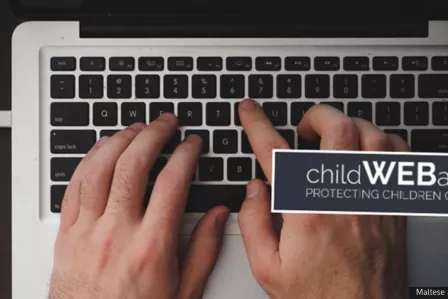BeSmartOnline – part of the Maltese Safer Internet Centre, shares insights on things everyone – but especially children and young people – should be wary of when posting online.

BeSmartOnline! is an EU co-financed project focusing on how an individual should use and behave when using technology. It is intended for children, parents, caregivers, and even professionals to make informed use of technology.
The project’s coordinator, Deborah Vassallo, stated that people need to know how to stay safe on various online platforms, especially by limiting the personal information they share and whom they share it with. When a person posts a photo online, she adds, the person is giving out a lot of information about themselves without being aware, such as where they are headed, with whom they are meeting, and information about their lifestyles in general. That’s why it’s important to think before you share/post online.
There may be some things we are feeling angry about and want to express it…we should be mindful of who will access this comment of ours and where the comment may end up if taken out of context. Everything that is written and uploaded online may be screenshotted by someone who then now possesses a copy of it and may use it negatively.
Caregivers should equally be careful
Ms Vassallo emphasised that parents and caregivers should equally think twice about what to upload online because this can negatively affect their children at that moment or later on.
We encounter such cases where, for example, following a photo uploaded by a parent, children may start getting bullied as a result. This means that, even as parents, we should be careful about what to upload, and it is important that we discuss online risks with children because when they are faced with a difficult situation, they will know that they can come to us.
Scams and suspicious messages
Another aspect to be aware of is suspicious messages one might receive and the information that a person provides.
If we get a text message from a foreign number that has never been received before, and it is asking us to open a particular link, be careful because it is most likely fake - there are currently many ongoing cyberattacks. When asked to provide personal information to open a link or provide our mobile number, password, credit card details or similar information, we should always avoid doing so because those are likely cyberattacks.
For further information, BeSmart Online can be contacted 24/7 at number 179, or on the website.
This article was sourced from the website https://tvmnews.mt/en/news/think-twice-before-writing-or-uploading-online-besmartonline-coordinator/.
Find out more about the work of the Maltese Safer Internet Centre, including its awareness raising, helpline, hotline and youth participation services – or find similar information for Safer Internet Centres throughout Europe.
BeSmartOnline – part of the Maltese Safer Internet Centre, shares insights on things everyone – but especially children and young people – should be wary of when posting online.

BeSmartOnline! is an EU co-financed project focusing on how an individual should use and behave when using technology. It is intended for children, parents, caregivers, and even professionals to make informed use of technology.
The project’s coordinator, Deborah Vassallo, stated that people need to know how to stay safe on various online platforms, especially by limiting the personal information they share and whom they share it with. When a person posts a photo online, she adds, the person is giving out a lot of information about themselves without being aware, such as where they are headed, with whom they are meeting, and information about their lifestyles in general. That’s why it’s important to think before you share/post online.
There may be some things we are feeling angry about and want to express it…we should be mindful of who will access this comment of ours and where the comment may end up if taken out of context. Everything that is written and uploaded online may be screenshotted by someone who then now possesses a copy of it and may use it negatively.
Caregivers should equally be careful
Ms Vassallo emphasised that parents and caregivers should equally think twice about what to upload online because this can negatively affect their children at that moment or later on.
We encounter such cases where, for example, following a photo uploaded by a parent, children may start getting bullied as a result. This means that, even as parents, we should be careful about what to upload, and it is important that we discuss online risks with children because when they are faced with a difficult situation, they will know that they can come to us.
Scams and suspicious messages
Another aspect to be aware of is suspicious messages one might receive and the information that a person provides.
If we get a text message from a foreign number that has never been received before, and it is asking us to open a particular link, be careful because it is most likely fake - there are currently many ongoing cyberattacks. When asked to provide personal information to open a link or provide our mobile number, password, credit card details or similar information, we should always avoid doing so because those are likely cyberattacks.
For further information, BeSmart Online can be contacted 24/7 at number 179, or on the website.
This article was sourced from the website https://tvmnews.mt/en/news/think-twice-before-writing-or-uploading-online-besmartonline-coordinator/.
Find out more about the work of the Maltese Safer Internet Centre, including its awareness raising, helpline, hotline and youth participation services – or find similar information for Safer Internet Centres throughout Europe.
- media literacy media education digital skills digital identity digital footprint
Related content
- < Previous article
- Next article >












